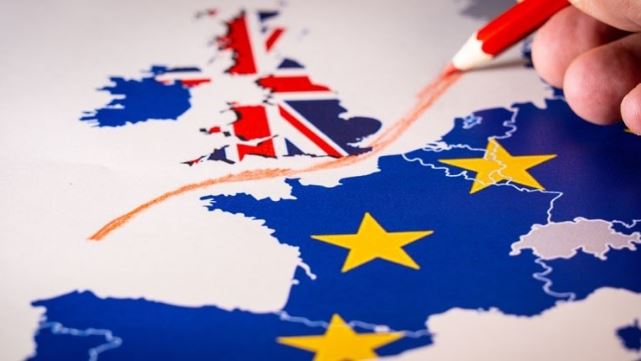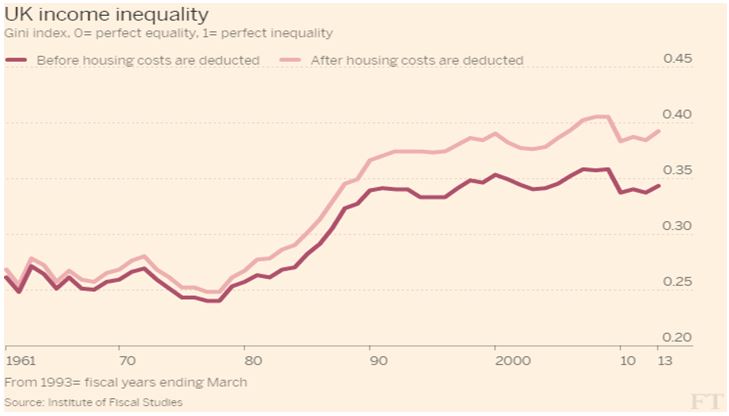Impact of Brexit on Recruitment in the United Kingdom
Brexit, referring to the withdrawal of the United Kingdom (UK) from the European Union (EU), has had far-reaching implications across various sectors. One area significantly affected by this decision is recruitment in the UK. In this essay, we will explore how Brexit has impacted recruitment processes and practices in the country.
Prior to Brexit, the UK enjoyed access to a large pool of skilled workers from EU member states. However, with the new immigration rules and the end of free movement, the recruitment landscape has undergone a transformation.
One immediate consequence of Brexit is the tightening of immigration regulations. The freedom of movement for EU citizens no longer applies, and a new points-based system has been introduced. This has made it more challenging for UK businesses to attract and hire talent from the EU. The added bureaucratic hurdles, such as visa requirements and sponsorship obligations, have increased the complexity and cost of recruiting from abroad.
As a result, many industries in the UK are experiencing labor shortages, particularly in sectors heavily reliant on EU workers, such as healthcare, hospitality, and construction. The scarcity of skilled labor has put upward pressure on wages and increased competition among employers for qualified candidates.
To mitigate these challenges, businesses have had to adjust their recruitment strategies. They are now focusing more on upskilling and reskilling their existing workforce, as well as seeking talent from non-EU countries. Additionally, some companies have expanded their operations to other EU countries, aiming to access a broader talent pool.
Overall, Brexit has brought about significant changes to recruitment in the UK, requiring businesses to adapt and find innovative solutions to address the labor market challenges posed by the new post-Brexit environment.
Overview of Recruitment in the United Kingdom
Recruitment plays a crucial role in meeting businesses’ workforce needs, ensuring they have access to skilled and qualified individuals to drive their growth and success. Prior to examining the impact of Brexit on recruitment, it is important to understand the current state of recruitment in the UK.
Pre-Brexit Recruitment Landscape
Before Brexit, there were already existing labor shortages and skill gaps within certain industries in the UK. For instance, research conducted by Read and Fenge (2018) highlighted challenges faced by social care sector recruiters due to factors such as low wages, demanding working conditions, and limited career progression opportunities.
To address these pre-existing challenges, businesses employed strategies that included both domestic and international recruitment efforts. Cooperating with universities worldwide allowed UK institutions to attract students from former Soviet countries (Chankseliani, 2017). Additionally, companies sought talent from EU member states under free movement policies facilitated by EU membership.
Anticipated Effects of Brexit on Recruitment
Post-Brexit scenarios raise concerns about potential impacts on talent acquisition for UK businesses. One significant factor is changes to immigration policies affecting access to talent from EU countries following Britain’s departure from freedom-of-movement agreements. Johnson’s study (2019) explores how tech workers are leaving Britain due to uncertainty around future employment prospects related directly or indirectly with Brexit consequences.
One possible outcome could be a shift towards more domestic hiring as companies may turn their focus inwardly when seeking new recruits rather than relying heavily on non-UK EU talent. This could result in a revitalization of domestic talent pipelines and an emphasis on upskilling existing employees.
Challenges Faced by Businesses Post-Brexit
Post-Brexit, businesses are expected to face specific challenges in recruiting and retaining talent. Legal or regulatory hurdles may arise due to changes in immigration laws or trade agreements between the UK and the EU.
Companies will need to navigate these new complexities while continuing to attract qualified candidates who meet their requirements. They may also have to ensure compliance with evolving regulations related to work permits, visa sponsorship, and right-to-work checks.
Strategies for Adaptation
To adapt successfully to post-Brexit recruitment challenges, businesses can employ various strategies. One approach is investing in upskilling programs for existing employees, allowing them to acquire the necessary skills needed for new roles within the organization. Expanding domestic talent pipelines through collaborations with education institutions can help create a steady stream of skilled graduates ready for employment opportunities. Seeking alternative sources of international talent from non-EU countries is another option that companies should consider.
Case Studies: Impact on Different Sectors/Industries
To illustrate how different sectors/industries are affected by Brexit’s impact on recruitment, let us examine two case studies:
The tech industry has experienced a significant impact from Brexit on its labor force (Johnson, 2019). Uncertainty surrounding future employment prospects has led many tech workers from Britain towards Ireland where they perceive more stability and better career opportunities.
Similarly, the social care sector faces considerable challenges recruiting and retaining staff due to factors such as low wages and limited career progression (Read & Fenge, 2018). While Brexit adds further uncertainty about accessing overseas workers within this sector, it also provides an opportunity for greater investment in domestic workforce development efforts.
Government Initiatives and Support
Recognizing the importance of supporting businesses with post-Brexit recruitment challenges, the UK government has implemented various initiatives. These include providing guidance to companies on navigating changes in immigration regulations and offering financial incentives for upskilling programs.
However, it is essential to continuously evaluate the effectiveness of these initiatives and identify areas for improvement. Regular consultations with businesses and industry representatives can help refine government support mechanisms and ensure they align with evolving needs.
Conclusion
In conclusion, Brexit has had a significant impact on recruitment practices in the United Kingdom. Changes to immigration policies and trade agreements have introduced new challenges for businesses seeking talent both domestically and internationally. To navigate these challenges successfully, organizations must adapt their recruitment strategies by investing in domestic talent pipelines, upskilling existing employees, and exploring alternative sources of international talent.
While the road ahead may be uncertain, proactive measures taken by businesses, combined with effective government support, can mitigate many of the disruptions caused by Brexit’s impact on recruitment in the UK.
References
Johnson, D. (2019). Brexit pushes tech workers from Britain to Ireland: Confusion about the future is changing recruitment – [Resources_Careers]. IEEE Spectrum, 56(8), 18–19.
Read, R., & Fenge, L. (2018). What does Brexit mean for the UK social care workforce? Perspectives from the recruitment and retention frontline. Health & Social Care in the Community, 27(3), 676–682.
Edwards, D., Trigg, L., Carrier, J., Cooper, A., Csontos, J., Day, J., Gillen, E., Lewis, R., & Edwards, A. (2022). A rapid review of innovations for attraction, recruitment and retention of social care workers, and exploration of factors influencing turnover within the UK context. Journal of Long Term Care, 205–221.
Chankseliani, M. (2017). Four Rationales of HE Internationalization: Perspectives of U.K. Universities on Attracting Students From Former Soviet Countries. Journal of Studies in International Education, 22(1), 53–70.
Brexit on Recruitment Relevant Links
Best HRM Dissertation Topics For University Students
Recruitment Dissertation Topics
If you have any further questions or would like to share your thoughts, please feel free to leave a comment below. We look forward to continuing the conversation and embarking on new adventures together.




